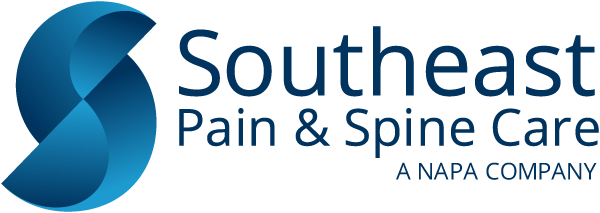Using Radiofrequency Lesioning to Treat Shoulder Pain
PUBLISHED ON:
December 9, 2021
If you’re living with chronic shoulder pain, you may feel like the only way out is surgery. When considering joints, sometimes invasive treatments are the first thing that comes to mind. You’ll find when looking into Southeast Pain & Spine Care that our mission is to find the least invasive way to eliminate your pain and give you the freedom to enjoy your life.
What is radiofrequency lesioning?
Sometimes referred to as radiofrequency ablation, radiofrequency lesioning is a treatment that effectively interrupts pain signals. Unlike other treatments, the results of radiofrequency are more long-term. The electricity that comes from radiofrequency stops the nerves from communicating the pain to your brain receptors. Basically, your brain isn’t told the pain is there and you stop feeling it.
Radiofrequency lesioning for shoulder pain
Because patient feedback is important during the procedure, it’s done while you’re awake and is an outpatient treatment. The administering doctor will administer localized anesthetics to numb the part of the body where the injection will occur, and then the needle will be inserted. The doctor will watch all of this happen through X-Ray, as it enhances their view of your nerves, and gives them a clearer vision of what’s going on.
The majority of people who have undergone the treatment claimed to have felt no pain, only small amounts of discomfort. The needle used in the procedure sends out electric charges, and when met with the metal, they create lesions. By burning the nerves, the pain signal is no longer active.
The recovery time is minimal after this procedure, and you may only experience slight bruising around the injection site.
How long does the pain relief last after the procedure?
Outcomes vary between patients, but it’s often between six to twelve months of pain relief that can be expected. And, if the procedure goes smoothly, there can be repeated procedures following.
What types of conditions can be treated?
- Inflammation
- Muscle tears/sprains
- Arthritis
- Any other pain from an injury
Arthritis is one of the more common conditions that this treatment is used for. For more information on how radiofrequency is used to treat arthritis, click here. Since the shoulder is used so frequently, similar to the knees and hands, arthritis has a tendency to affect that area more often than other joints.
If you’re suffering, you don’t have to wait it out, ice it, or elevate it. You have options! And, not all of them are surgical. Don’t be afraid to think outside of the box to find pain relief. If you have more questions, feel free to contact us! Also, if you’re interested in a consultation, fill out the form below this article, and we will be in touch to discuss your options! We look forward to speaking with you!
PUBLISHED ON:
December 9, 2021


